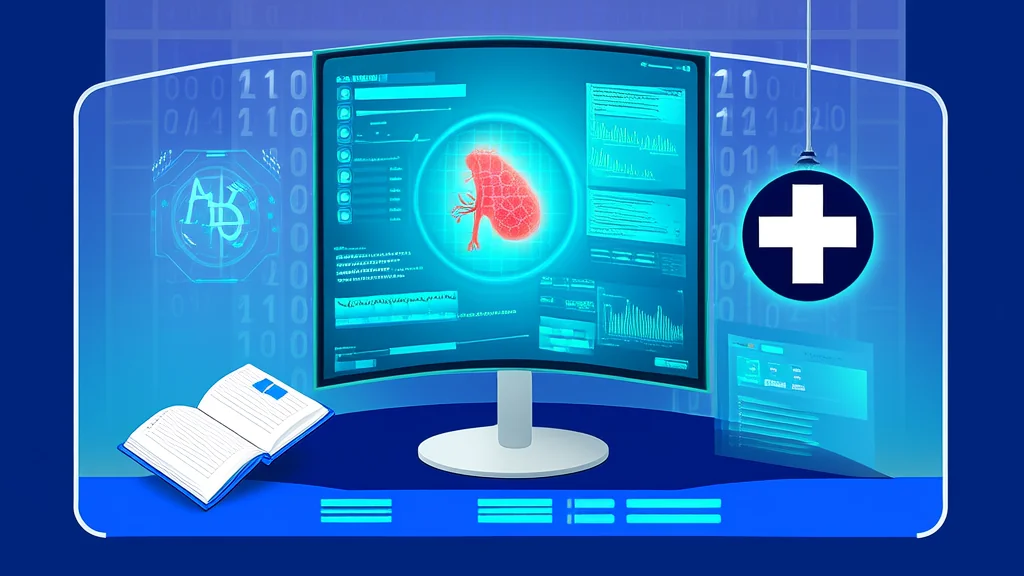The Impact of AI: Transforming Industries and Everyday Life
Artificial Intelligence (AI) is no longer just a buzzword; it's a transformative force that is reshaping our world. From healthcare to retail, and from startups to consumer tech, AI is making a tangible difference in how we live, work, and interact with the world around us. In this blog post, we'll explore some of the most impactful and practical applications of AI, along with real-world examples and future implications.
AI in Healthcare: Revolutionizing Patient Care
One of the most promising areas for AI is in healthcare, where it is being used to improve diagnostics, personalize treatment, and enhance patient care. For instance, Google Health has developed an AI-powered tool that can detect breast cancer more accurately than human radiologists. This tool, which uses deep learning algorithms, has been shown to reduce false positives by 5.7% and false negatives by 9.4%.
Practical Impact: Improved accuracy in cancer detection means earlier diagnosis and better treatment outcomes for patients. This not only saves lives but also reduces the emotional and financial burden on families and the healthcare system.
Real-World Example: In the UK, the National Health Service (NHS) has partnered with Google Health to pilot this technology in several hospitals. The results have been overwhelmingly positive, with both doctors and patients reporting increased confidence in the diagnostic process.
Future Implications: As AI continues to evolve, we can expect to see more sophisticated tools that can detect a wider range of diseases, leading to more personalized and effective treatments. This could potentially revolutionize the entire healthcare industry, making it more efficient and patient-centric.
Innovative AI Startups: Solving Real-World Problems
The startup ecosystem is buzzing with innovative AI companies that are tackling some of the world's most pressing problems. One such company is ClimateTech, which uses AI to predict and mitigate the effects of climate change. ClimateTech's platform analyzes satellite data, weather patterns, and other environmental factors to provide actionable insights for governments and businesses.
Practical Impact: By providing real-time data and predictive analytics, ClimateTech helps organizations make informed decisions about resource allocation, disaster preparedness, and sustainable practices. This can lead to significant cost savings and a more resilient infrastructure.
Real-World Example: In 2024, ClimateTech partnered with the city of Miami to help them prepare for hurricane season. The AI-powered platform provided detailed forecasts and risk assessments, allowing the city to allocate resources more effectively and minimize damage. As a result, Miami was able to save millions of dollars in emergency response costs and reduce the impact on residents.
Future Implications: As climate change continues to be a global concern, AI-driven solutions like ClimateTech will become increasingly important. These technologies can help us better understand and address the complex challenges of a changing environment, leading to a more sustainable future.
New AI Apps for Everyday Use: Enhancing User Experience
AI is also making its way into our daily lives through a variety of consumer apps and tools. One of the most notable examples is VoiceAssist, a voice-activated personal assistant that uses natural language processing (NLP) to understand and respond to user commands. VoiceAssist can help with everything from setting reminders and making calls to controlling smart home devices and providing information on the go.
Practical Impact: VoiceAssist simplifies everyday tasks and makes technology more accessible to people of all ages and abilities. It can be particularly useful for those with mobility or visual impairments, as it allows them to control their devices and access information without the need for physical interaction.
Real-World Example: Sarah, a 78-year-old grandmother, uses VoiceAssist to stay connected with her family and manage her daily routine. She can easily set reminders for her medication, call her grandchildren, and even order groceries online. Sarah's experience with VoiceAssist has made her feel more independent and confident in using technology.
Future Implications: As AI continues to advance, we can expect to see more intuitive and user-friendly apps that seamlessly integrate into our daily lives. These tools will not only make our lives easier but also help bridge the digital divide, ensuring that everyone can benefit from the latest technological advancements.
As these examples show, AI is not just a futuristic concept; it is already making a significant impact in various industries and in our everyday lives. From improving healthcare and addressing climate change to enhancing user experiences, the potential of AI is vast and exciting. As we move forward, it will be crucial to continue exploring and implementing AI in ways that benefit society as a whole, while also addressing the ethical and social considerations that come with such powerful technology.
